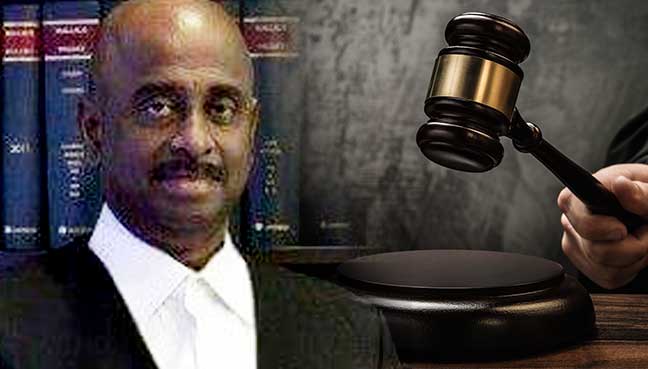Not right for government to sue individuals, says lawyer

PETALING JAYA: A Federal Court decision is to determine conclusively whether a government body may sue an individual for defamation, says lawyer S N Nair.
He said while the law under section 3 of the Government Proceedings Act (GPA) 1956 had been well enumerated by the majority judgment of the Court of Appeal, it appeared to be well founded, unfortunately.
“It would be outrageous to allow the government to sue an individual for defamation as it constricts freedom of expression under Article 10 of the Federal Constitution,” he told FMT.
A five-man bench chaired by Justice Ahmad Maarop on May 16 had reserved judgment on Kota Sentosa assemblyman Chong Chieng Jen’s appeal against the Court of Appeal’s decision allowing the Sarawak government to sue him for defamation.
Nair was responding to fellow lawyer David Gurupatham, who said that the Malaysian Anti-Corruption Commission (MACC) would not be violating the constitution if it proceeded to sue Penang Chief Minister Lim Guan Eng.
“Unlike the common law of England, based on what is commonly known as the Derbyshire principle, proceedings by or against the government are not bound by common law rules but are regulated by statute,” he said.
Gurupatham said the government could sue and be sued under section 3 of the GPA and did not exclude a defamation suit to be filed against anyone.
“Section 3 gives the government the same right as a private individual to enforce a claim against another private individual by way of civil action. It is a statutory right and not a common law right,” he said in a statement.
On Sept 6, Padang Serai MP N Surendran said Lim had been “well within” the protection of free speech guaranteed by the constitution when he reportedly described the MACC’s detention of Penang state executive councillor Phee Boon Poh last month over an unlicensed factory, as “illegal”.
Surendran, who is also a lawyer, said defamation actions were available to private persons but not to public-funded bodies such as the MACC.
He added that this was an “obvious and basic principle” to ensure transparency and accountability among public-funded bodies.
Gurupatham, however, said the right to freedom of speech and expression guaranteed by Article 10 was not an absolute and unfettered right.
Nair said politicians would be put in a precarious position should the majority Court of Appeal judgment be upheld.
“It is hoped that the Federal Court will depart from the Court of Appeal decision and follow the Derbyshire legal principle on grounds of public policy to safeguard Article 10,” Nair said.
In the Derbyshire case, the English court ruled that government could not sue individuals and Nair said the case had its rationale as it would lead to grave injustice against the layman.
“The state has the resources to file suits all the way up to the apex court compared to private citizens whose access to justice could be limited,” he said.
Nair said the individual would have to pay damages plus costs to the government if found liable.
“Failure to allow dissent could also lead to a totalitarian state,” he added.
On Sept 5, the MACC said it would take Lim to court after he refused to apologise over the reported statement.
It said the decision by its top management was unanimous, adding that it had no vested interest in its investigations.
In April 2013, the state government and the state Financial Authority filed an action against Chong for alleging that RM11 billion had disappeared “into a black hole”. His statement was published in a Chinese national daily and a news portal, and in pamphlets distributed by Chong and the DAP.
The High Court in Kuching in 2014 held that the defendants were not allowed under common law to sue Chong for defamation even though his words against the government were defamatory.
Last year the Court of Appeal 2-1 ruling set aside the High Court decision.
Justice David Wong Dak Wah in his minority judgment said the government should not be allowed to sue individuals as it could resort to criminal defamation law, the Printing Presses and Publications Act and the Sedition Act to defend itself.
Source : Free Malaysia Today